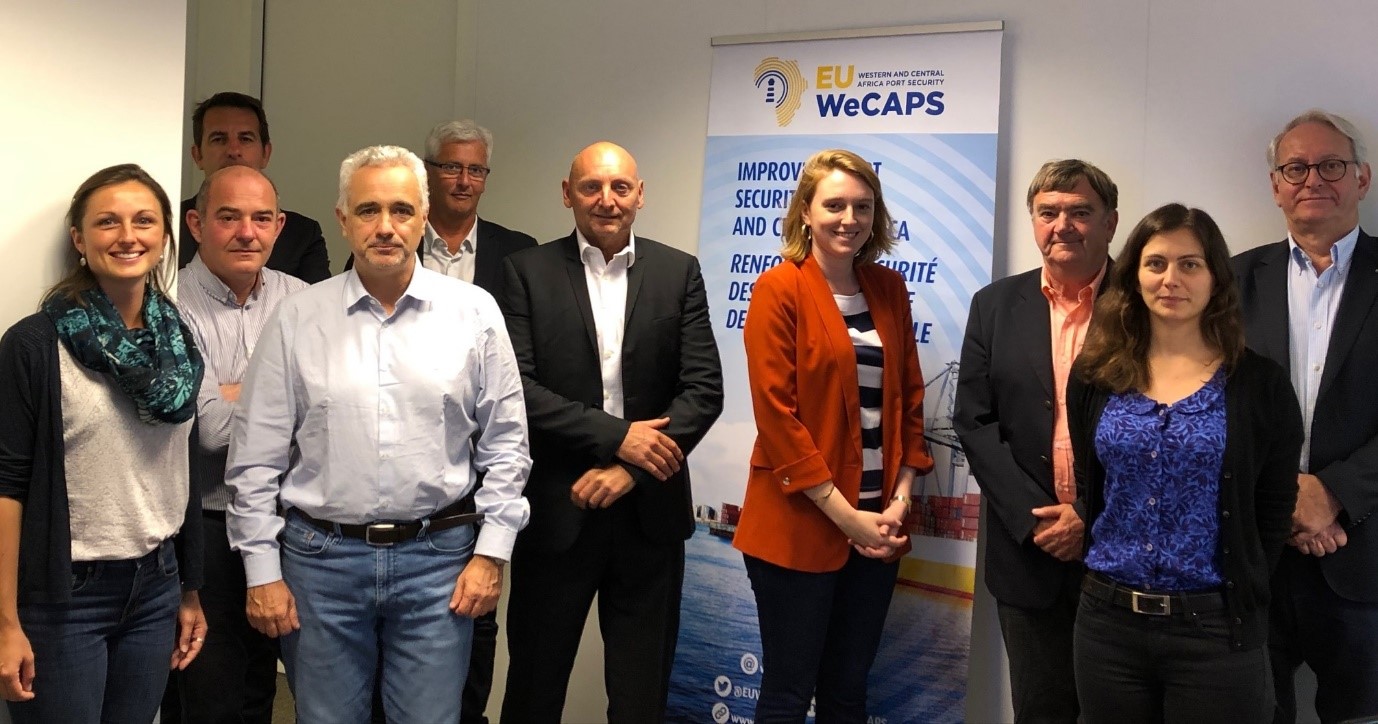Crisis management in a port facility: from the predictable to the unpredictable
Port facilities are sensitive sites and require full control over the risks and threats likely to affect them. Furthermore, crisis management in a port facility requires special attention by the authorities as there can be disastrous human, material and environmental consequences. This was illustrated by the tragic and devastating explosions on 4 August 2020 in Beirut Port in Lebanon.
Through the workshop organised in July 2020, the WeCAPS project is demonstrating its commitment to help partner ports and the related government services in West and Central Africa to consider, prevent and manage crises, constantly seeking to propose solutions tailored to their needs.
Identify and reduce their vulnerability, a major issue for ports
The European Union, which has activated emergency aid for Lebanon, attaches particular importance to port security in general and more particularly in West and Central Africa via WeCAPS. This regional project aims to increase the capacities of local partners to take the vulnerability of ports into account and reduce it. In addition to the capacity building activities planned in the fields of port safety and governance, the WeCAPS project team has also set the objective of assisting port authorities in the field of security.
These authorities need to continue to increase their awareness of the importance of prevention (measures to evacuate people in danger, reduce the risks of fires breaking out and spreading and facilitate the intervention of emergency services) and the preparation of the operational response. This preparation includes an essential stage of preliminary risk studies (identification of potential dangers: fire, explosion, toxicity…), followed by a detailed risk analysis stage (evaluation of the intensity of the effects, the severity of the consequences, the kinetics and the probability in order to determine a risk rating and identify major risks). These analyses are essential for identifying measures to reduce or remove major risks adapted to the working environment.
Preparing the operational response
Indeed, as the dramatic example in Lebanon showed last August, a port is a high-risk area: in addition to the risks related to the presence of hazardous goods, there is a strong concentration of activity and there are both major human, economic and environmental issues. A major event can occur in a port facility (fires on ships, discharge of toxic products, explosions of chemical substances…) for which it is necessary to mobilise major emergency resources external to the port.
In addition to the resources mobilised, the preparation of the operational response for the coordination of the emergency services and management of the emergency operation is a key concept. First responders do, of course, need to undertake training and exercises to carry out decisive action in the first hours (treat victims, limit the effects of an accident…). But it is also essential to raise the awareness of decision-makers in the ports and administrations that contribute to the management of a crisis about breakdown situations, such as the situations that have tragically afflicted Lebanon.
It is in this context and at the initiative of Samuel Champon, the project’s civil protection expert, that WeCAPS gathered high-level experts in crisis management at the premises of Expertise France. They were from the Paris Fire Brigade and the consulting firm BJR EXPERTISE, which is specialised in the assessment of fires, explosions, industrial risks and crisis management, as well as in technological risks and training/exercises. They built a training programme on crisis management for civil protection services in ports. During this meeting, the experts were able to build adaptable training to match the type of crisis (land or sea), regardless of the specific management organisation of the host country.

The tragic and devastating Beirut Port blasts made the project’s partner ports very aware of the need to reduce vulnerability to hazardous materials. For example, WeCAPS has received urgent requests from the ports of Dakar and Lomé to help them identify this type of material as quickly as possible. To answer these requests, the project team will go to Togo in early October to directly analyse the situation of the port on site. From 21 to 24 September 2020, WeCAPS also organised a needs-assessment mission at the port of Dakar. The project experts visited the port facilities in order to help them identify their weaknesses and prevent this type of disaster, but also to propose solutions to them, which include training in crisis management, which will start in early 2021.
The WeCAPS project is part of the Critical Maritime Routes (CMR) programme, a framework action funded by the European Union which aims to improve the security and safety of maritime routes in the Gulf of Guinea and extended Indian Ocean area.
 More about the WeCAPS project
More about the WeCAPS project

